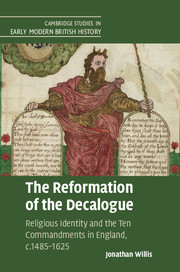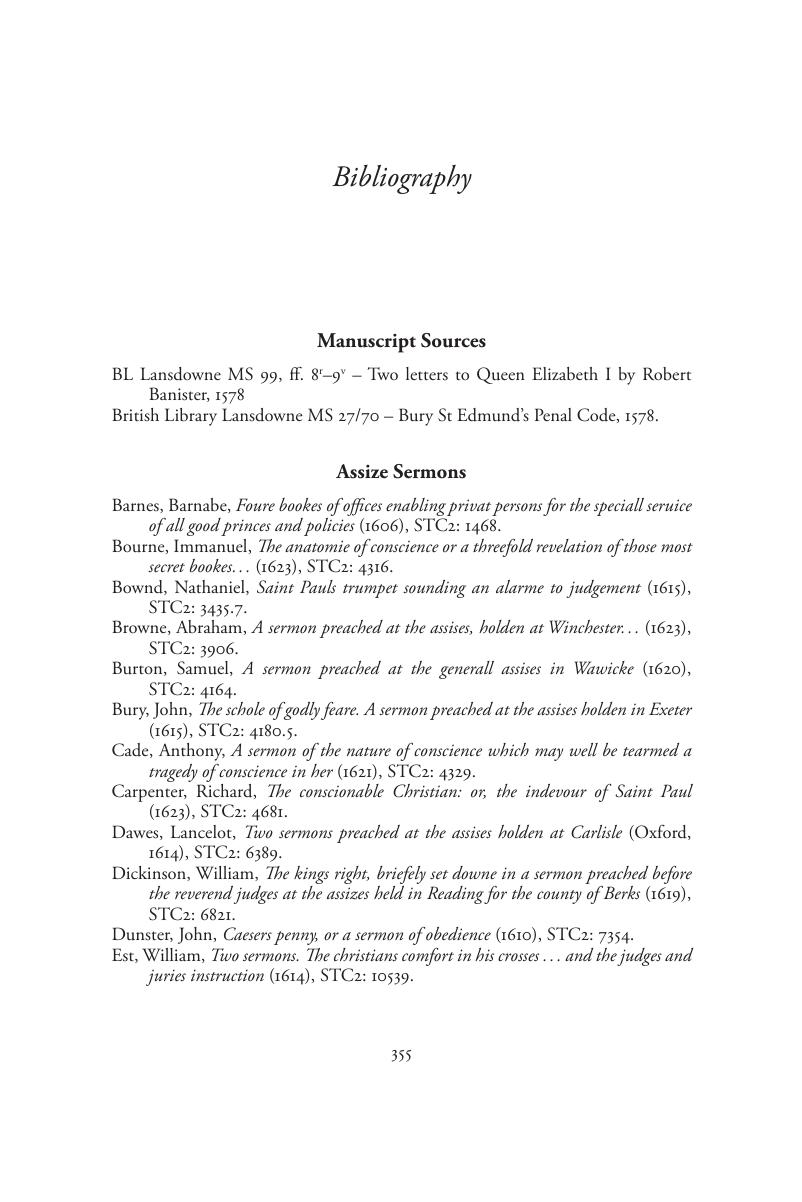 The Reformation of the Decalogue
The Reformation of the Decalogue Book contents
- The Reformation of the Decalogue
- Cambridge Studies in Early Modern British History
- The Reformation of the Decalogue
- Copyright page
- Dedication
- Contents
- Figures
- Tables
- Acknowledgements
- Notes on the Text
- Abbreviations
- Introduction: The Reformation of the Decalogue
- Part I The Civil Office of the Law
- Part II The Evangelical Office of the Law
- Part III The Practical Office of the Law
- Conclusion: The Ten Commandments in England, c.1485–c.1625
- Bibliography
- Index
- References
Bibliography
Published online by Cambridge University Press: 12 October 2017
- The Reformation of the Decalogue
- Cambridge Studies in Early Modern British History
- The Reformation of the Decalogue
- Copyright page
- Dedication
- Contents
- Figures
- Tables
- Acknowledgements
- Notes on the Text
- Abbreviations
- Introduction: The Reformation of the Decalogue
- Part I The Civil Office of the Law
- Part II The Evangelical Office of the Law
- Part III The Practical Office of the Law
- Conclusion: The Ten Commandments in England, c.1485–c.1625
- Bibliography
- Index
- References
Summary

- Type
- Chapter
- Information
- The Reformation of the DecalogueReligious Identity and the Ten Commandments in England, c.1485–1625, pp. 345 - 354Publisher: Cambridge University PressPrint publication year: 2017
